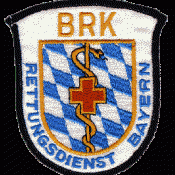More questions:
Did this ever happen before?
Kind and location of chest pain (sharp, oppressive, exact location, wandering, radiating, changing with chest movement)?
Known allergies?
Illnesses/symptoms the last few days (infect or else)?
Recent injuries, accidents?
From the medications: known diabetis -> is this correct? Since when? Last time to see a doctor about this? Your normal blood glucose level? Last checked (time, value)?
Other known medical problems: high/low blood pressure? Smoker?
No alcohol/drugs at the moment -> do you normally (ab)use alcohol/drugs?
Since in hotel/travelling: from where (maybe remote places with infection risk)? How long on the road/plane?
Stress?
Last meal/beverage (contents, time)?
Last urine normal or unusual (smelly, red, ...)?
Last defecation (time, something unusual)?
More measurements/inspections:
Blood glucose level (in mg/dl please...)?
ECG, 12 lead -> anything to see?
Temperature?
pharyngeal inspection (signs of infection)?
lung sounds?
bowel movements/sounds? Abdominal pain/abnormalities (palpation)?
too bad you can't provide information about your pupils, so I'm assuming nothing unusual there (-> adequate reactions, no unusual visual effects)
short neuro check #1: follow my finger with the eyes (up, down, right, left) -> reduced movement?
short neuro check #2: stretch and lift arms in front of the chest, close eyes, try to hold them straight -> muscle tonus, sinking of one or both arms?
short neuro check #3: close eyes, try to touch your nose with index finger of both hands (successively) -> muscle tonus, side consistent?
short neuro check #4: lift arms/legs (successively) against my pressing -> muscle tonus, side consistent?
Preparing transport:
"Sir, you have some medical problem, most probably with your circulation (won't rule out neurological or other at this stage, but I won't say that). We can't be sure that you don't pass out any time again in a not so harmless environment. Considering that and you having a known history of at least diabetis, it should be checked and maybe adjusted. We want to take you to the hospital to have more possibilities for a diagnosis and care. Do you agree?"
Get appropriate lifting tool (stretcher) near the room/bed. Intentionally let patient step up (slowly, controlled) to get to the stretcher to test if there may be an orthostatic problem.
Get him see a hospital with more tools and a lab.
Anything else:
If not something special on the ECG or things change: no. Just monitoring. Personally I don't even see a reason for an i.v., others may do.
Possible diagnosis on my call protocol would be now "situation after beeing unconscious for unknown time, poor general condition, known diabetis", differential diagnoses (depending on findings in above additional measurements):
orthostatic disregulation of unknown reason
diabetis disregulation (blood glucose level?)
myocard related circulation problem (ECG?)
infection (temperature?)
intoxication (last meal?)
neurologic related (recent injuries?)
On this stage it could be almost anything. As long as he's stable and willing to come with us, I wouldn't try much to figure. Just gather information on scene, put him on monitoring, get him to a hospital following usual hygienic protocols (here: wearing gloves, desinfecting hands afterwards plus all equipment having direct/indirect contact with the patient - that's at least what we do after each call).
I recently had a similar patient with several medical and psychological pre-diagnoses nearly passing out after a short hike, turned out he had an acute noro-virus infection. I don't know if it was this patient, but the hospital we brought him into was closed for more than a week due to a burst in noro-virus infections the day after...glad to have cleaned my stuff after patient contact, the hospital probably should've done that, too...
Not to forget: surely hope it is better now, Ruff! Get well soon!
EDIT: inserted short neuro checks - don't have the proper englis short terms, so described them.




